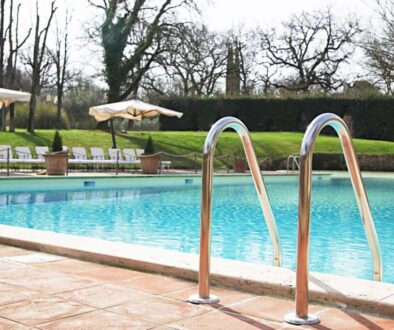Discover the key differences between asset-only and business sales in pool routes, helping you make informed decisions for your investment journey.
Understanding Asset-Only vs. Business Sales in Pool Routes
When it comes to acquiring pool routes, one of the most significant decisions prospective buyers face is whether to engage in asset-only sales or full business sales. Understanding the nuances of these two approaches is essential for anyone looking to invest in the pool maintenance industry. In this blog post, we’ll delve into the distinctions between asset-only and business sales, exploring their implications, advantages, and considerations for potential buyers. By the end, you’ll have a clearer perspective on which option may suit your investment goals and how to navigate the purchasing process effectively.
Introduction
The pool maintenance industry is a thriving sector, especially in states like Florida and Texas, where warm climates ensure a steady demand for pool services. As the market continues to grow, opportunities for entrepreneurs to enter this industry abound, particularly through the purchase of established pool routes. However, with two primary sales structures—asset-only and business sales—it’s vital to understand the differences to make an informed choice. This article will provide insights into the benefits of each approach, helping you decide which path aligns best with your personal and financial objectives.
The Nature of Asset-Only Sales
Asset-only sales refer to the purchase of specific assets associated with a pool route, excluding the business itself. In this scenario, buyers acquire tangible assets such as equipment, vehicles, and customer contracts, but they do not gain ownership of the company’s brand or goodwill.
One of the primary advantages of asset-only sales is the lower initial investment required. Buyers can often negotiate to purchase only the essential elements needed to operate the pool service without taking on the entire business structure. This approach can be particularly appealing for individuals who want to build their own brand or integrate the service into an existing business setup.
For instance, if you purchase a pool route through an asset-only sale, you might acquire just the equipment and the customer list. This enables you to operate under your own business name and potentially adjust service offerings according to your vision. According to industry statistics, many new entrepreneurs prefer this route because it allows them to test their business model without the pressures associated with existing branding or operational obligations.
However, potential buyers should be mindful that asset-only sales may lack the stability that comes with an established business. Without the existing customer base and brand reputation, new owners may face challenges in maintaining a steady flow of business initially. This can lead to a longer ramp-up period before achieving profitability.
The Dynamics of Business Sales
In contrast, business sales involve the complete transfer of ownership of a pool route, including all assets, brand identity, customer relationships, and operational procedures. This route is more comprehensive, allowing buyers to step into a fully operational business with an established market presence.
The most significant benefit of purchasing a business outright is the immediate income stream. Buyers can start generating revenue from day one, leveraging the existing customer base that trusts the established brand. This is especially crucial in the pool maintenance industry, where customer loyalty can significantly impact profitability.
Moreover, with business sales, buyers often inherit proven operational systems, marketing strategies, and employee expertise. This can drastically reduce the learning curve associated with starting a new venture. For instance, when a buyer acquires a pool service business, they typically receive insights into effective scheduling, customer retention tactics, and potentially even a team of trained employees who can maintain service continuity.
However, this approach often comes with a higher price tag. The buyer not only pays for physical assets but also for the intangible qualities of the business, such as goodwill and brand reputation. Therefore, it’s crucial for potential buyers to conduct thorough due diligence to ensure that the business is truly worth the investment. A careful examination of financial records, customer satisfaction levels, and market positioning is essential to avoid pitfalls.
Comparing Asset-Only and Business Sales
When evaluating asset-only versus business sales, buyers should consider several factors: risk tolerance, investment budget, and long-term business goals. Asset-only sales may appeal to those looking to enter the market with lower upfront costs and a desire to create a unique brand identity. Conversely, business sales are ideal for individuals seeking immediate revenue and a turn-key operation.
For instance, an entrepreneur with prior experience in the pool service industry, who possesses specific operational expertise, may prefer an asset-only sale. This allows them to customize their approach based on personal insights. On the other hand, a novice who desires a stable entry point might find the business sale more attractive.
Expert opinions highlight the importance of aligning your choice with personal motivations and financial strategies. “It’s essential to know what you want from your investment before diving in,” states industry expert Alex Greene. “While asset-only sales can be less risky, they require more entrepreneurial spirit. Business sales offer less risk and immediate returns but come with a higher entry cost.”
Implications for Buyers
Understanding these two sales structures can help buyers make informed decisions that align with their goals. For individuals in Florida and Texas—two states with expansive pool service markets—the implications of choosing the right sales structure can be even more pronounced.
In Florida, where the climate fosters year-round pool maintenance, purchasing a business outright might be more favorable due to the established customer base that ensures consistent income. Conversely, in Texas, where the market may be more fragmented, an asset-only sale might allow buyers to strategically carve out their niche within the competitive landscape.
Best practices for buyers considering either route include conducting thorough market research, engaging with a knowledgeable pool business broker, and assessing financial projections. This proactive approach can help mitigate risks and lead to successful ownership experiences.
Financing Considerations
Financing options can vary significantly between asset-only and business sales, impacting the overall purchasing strategy. For asset-only transactions, buyers may find it easier to secure loans, as banks tend to view tangible assets as less risky collateral. This can facilitate a smoother acquisition process, allowing buyers to start operations with a manageable investment.
On the other hand, financing a business sale may require more comprehensive financial scrutiny. Lenders will assess the overall profitability and sustainability of the business, which might involve a more extended approval process. Buyers should be prepared with robust business plans and financial forecasts to improve their chances of securing funding.
Additionally, many brokers, including Tower Business Brokers, Inc., offer tailored financing solutions to meet individual needs. This flexibility can significantly ease the financial burden of acquiring either type of asset.
Building Your Strategy for Success
Regardless of the path chosen, developing a well-structured strategy is crucial to achieving success in the pool maintenance industry.
If pursuing an asset-only sale, focus on building your brand identity and establishing strong customer relationships. Utilize marketing strategies that emphasize quality service and customer satisfaction, ensuring that you differentiate yourself from competitors. Consider investing in training programs that equip you with the skills needed to excel in operations.
For those opting for business sales, it’s vital to maintain the existing customer base while implementing improvements. Engage with customers to understand their needs, and find ways to enhance service offerings. Explore opportunities for growth, such as expanding service areas or diversifying service types.
Continuous learning and adaptation are key to thriving in this industry. Keep abreast of market trends, customer preferences, and technological advancements to ensure your pool service business remains competitive.
Conclusion
In the realm of pool route ownership, understanding the differences between asset-only and business sales is fundamental to making informed investment decisions. Each approach offers distinct advantages and considerations, catering to various buyer profiles and investment strategies. Whether you choose to pursue an asset-only sale to carve out your unique brand or opt for a business sale to step into an established operation, thorough research and strategic planning will be your best allies.
As you embark on this journey, consider reaching out to industry professionals, such as those at Tower Business Brokers, Inc., to guide you through the process. With the right support and insights, you’ll be well-equipped to navigate the exciting world of pool route ownership and achieve your entrepreneurial goals. Explore our offerings today and take the first step toward securing your future in the thriving pool maintenance industry.



